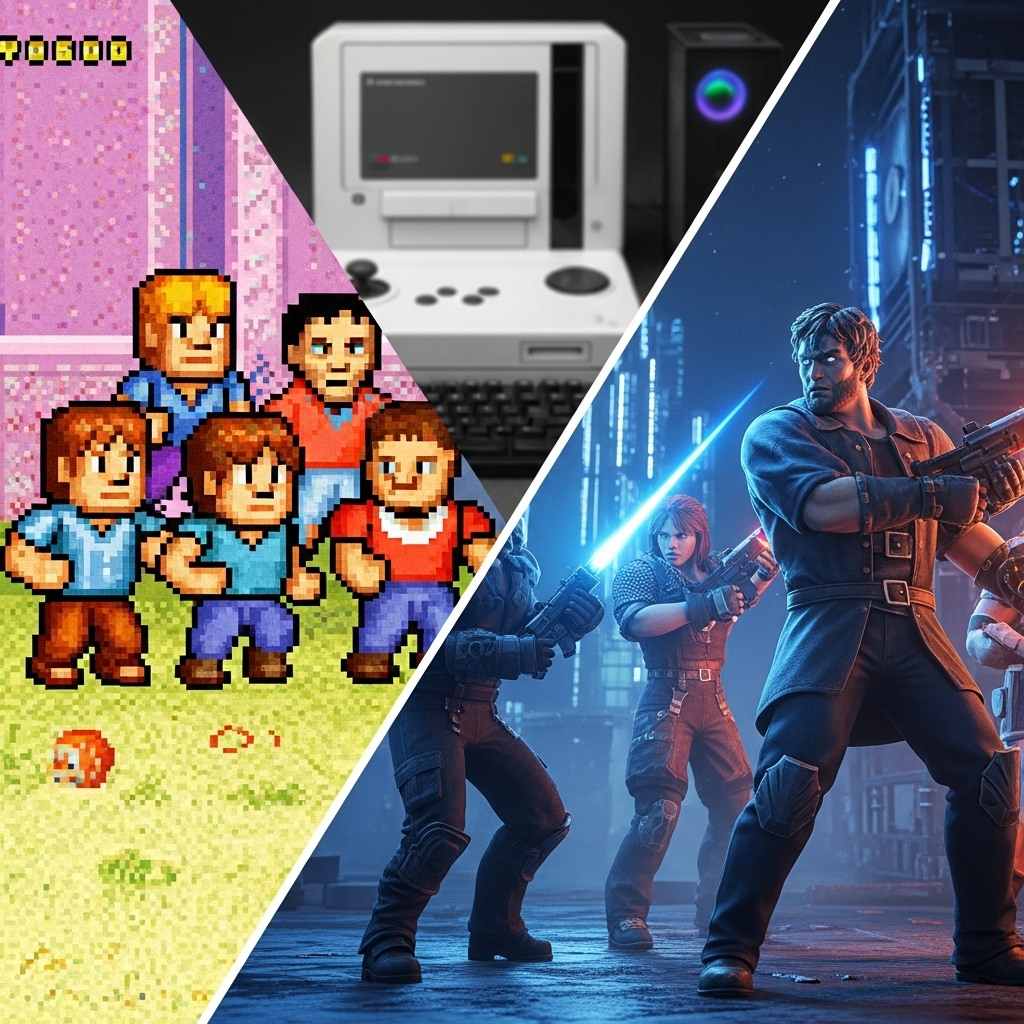In the ever-evolving landscape of video games, where cutting-edge graphics and innovative gameplay mechanics constantly push boundaries, there’s a fascinating trend that continues to captivate both developers and players: the resurgence of classic game remakes. These aren’t just simple re-releases or minor graphical updates; we’re talking about full-blown, from-the-ground-up reimaginings that breathe new life into beloved titles. But what exactly fuels this pervasive popularity? Let’s delve into the multi-faceted reasons behind the remake phenomenon.
The Power of Nostalgia: A Trip Down Memory Lane
Perhaps the most potent ingredient in the remake recipe is nostalgia. For many veteran gamers, classic titles represent a cherished part of their youth. Playing a remake is like revisiting an old friend, a tangible connection to a simpler time, evoking fond memories of late-night gaming sessions, epic boss battles, and unforgettable characters. Developers skillfully tap into this emotional wellspring, offering players a chance to relive those magical moments with a fresh coat of paint.
It’s not just about remembering the good times; it’s about experiencing them anew. Modern remakes often enhance the original narrative, deepen character arcs, and expand on lore, giving players a richer, more immersive experience than their younger selves could have ever imagined. This blend of familiarity and novelty is incredibly compelling.
Bridging the Generational Gap: Introducing Classics to New Audiences
While nostalgia is a powerful draw for older gamers, remakes also serve a crucial purpose in introducing classic titles to a whole new generation. Many younger players might find the dated graphics, clunky controls, or complex mechanics of original games inaccessible. Remakes break down these barriers.
By updating visuals to modern standards, refining controls to contemporary expectations, and often streamlining challenging elements, remakes make these legendary games approachable for a younger demographic. This allows new players to understand and appreciate the foundational titles that shaped the industry, ensuring that the legacy of these classics continues to thrive. It’s a win-win: veteran players get an upgraded experience, and new players discover timeless masterpieces.
Technological Advancements: Unlocking the Original Vision
Game development has come a long way since the 8-bit, 16-bit, and early 3D eras. Modern technology offers capabilities that original developers could only dream of. Remakes are often an opportunity for studios to truly realize the initial vision for a game, unconstrained by the technical limitations of their time.
Imagine a game with an ambitious story or expansive world that was hampered by draw distances, low polygon counts, or limited voice acting. A remake can leverage high-definition graphics, advanced lighting, realistic physics, orchestral scores, and full voice casts to bring that original concept to its full potential. This isn’t just about making things look prettier; it’s about enhancing atmosphere, deepening immersion, and refining gameplay in ways that were previously impossible.
Refined Gameplay and Quality of Life Improvements
Beyond graphical overhauls, remakes frequently introduce significant gameplay enhancements and “quality of life” improvements that address frustrations or limitations of the original. This could include:
- Improved Combat Systems: Modernized controls, new mechanics, or refined enemy AI.
- Streamlined Navigation: Better map systems, fast travel options, or clearer objective markers.
- Enhanced UI/UX: More intuitive menus and user interfaces.
- Accessibility Options: Features for players with different needs.
- New Content: Sometimes remakes even add new areas, side quests, or story elements that expand the original experience.
These changes make the games feel less dated and more enjoyable for a contemporary audience, often smoothing out the rough edges that time may have exposed in the originals.
A Lower Risk, Higher Reward Venture for Developers
From a business perspective, remakes present a relatively safer investment for game developers and publishers. The core concept, story, and characters are already proven to be popular and successful. There’s an established fanbase eagerly awaiting the return of their favorites, which significantly reduces marketing costs and the risk of a new IP failing.
Furthermore, developers often gain valuable experience and refine their engines by working on remakes before moving on to new, original projects. It’s a way to iterate on existing successes while showcasing their current technological prowess.
Conclusion: The Enduring Appeal of the Familiar, Yet New
The popularity of classic game remakes is a testament to the enduring power of great storytelling, compelling characters, and timeless gameplay. They offer a unique blend of nostalgia for veterans and a fresh, accessible experience for new players. As technology continues to advance, and the catalogue of beloved classics only grows, it’s clear that remakes will continue to be a vital and cherished part of the gaming industry for years to come. Whether you’re reliving a cherished memory or discovering a legendary title for the first time, remakes prove that some stories are simply too good to stay in the past.
